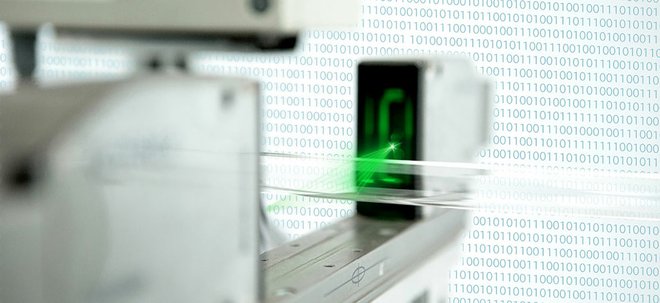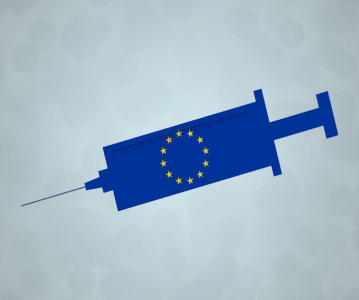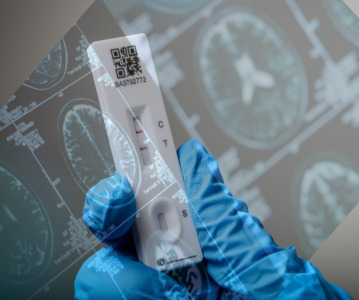Big data on way to enabling 'zero defect' glass tubing

On the way to ‘zero defect’ glass tubing with 100,000 data tags/minute.
New perfeXion system, which generates around 100,000 data tags/min, makes an important contribution to quality assurance for downstream post-processing steps at the beginning of the value chain.
Schott is integrating a specially developed big data solution into its pharmaceutical tubing production, replacing statistical sample-based quality assurance with 100 percent on-line measurement. With the new IT-based process called perfeXion, process- and product-quality data of each individual glass tube is collected online and in real-time – an innovation that sets new standards in the pharmaceutical glass industry.
Making accurate glass tubes for the pharmaceutical industry is no light feat: at several metres per second, a virtually endless glass tube comes from the melt at over 1,600 °C and is drawn over a rotating mandrel. By making adjustments to the drawing speed and the air supply, wall thickness and tube diameter can be precisely determined down to the hundredth of a millimeter. A few metres further down the line, the cooled glass section is then cut into roughly 1.50-m-long pieces. From these glass tubes, converters can later manufacture pharmaceutical containers such as vials and syringes. Thanks to a unique big data approach, Schott is now able to measure 100% of every single glass tube in production. This data also enables for post-processing steps to be efficiently aligned with the tubing quality. With big data, the international technology group is creating a new industry standard and raising the quality of pharmaceutical glass production to a new level.
Instead of selecting a few glass tubes from each batch for statistical quality control, the new perfeXion system measures the entire glass tube many times over as it is drawn from the melt. Lasers recognize deviations in diameter and wall thickness, for example, and camera and IR inspection systems can even detect the smallest inclusions in the glass. Around 100,000 data tags are generated every minute. An integrated IT system, evaluating the continuous glass tube with real-time data measurements, calculates incidents of imperfection with such precision that it can later differentiate corresponding individual tubes which can then be sorted out. Each tube is checked again at its completion.
The system’s development took several years. Analysing a curved tube surface zooming down a production line was a particularly difficult challenge. The effort, however, has paid off – not least because the data analysis is a source of insight into how production can be further optimized.
Every year, Schott produces about 150,000 tons of glass tubing, most of which is destined for pharmaceutical packaging such as vials and syringes. Thanks to the new perfeXion approach, quality data can be traced back more detailed, not only by Schott but also the companies at subsequent steps in the value chain. “There comes a particular responsibility being a pharmaceutical industry supplier, and traceability is a major issue in the industry,” says Dr Patrick Markschläger, Executive Vice President at Schott Tubing. “By gathering information on each individual glass tube, we’ve already made an important contribution to quality assurance for downstream post-processing steps at the very beginning of the value chain.”
Related News
-
News Patients vs Pharma – who will the Inflation Reduction Act affect the most?
The Inflation Reduction Act brought in by the Biden administration in 2022 aims to give better and more equitable access to healthcare in the USA. However, pharma companies are now concerned about the other potential costs of such legislation. -
News CPHI Podcast Series: What does the changing US Pharma market mean for industry and patients alike?
In this week's episode of the CPHI Podcast Series Lucy Chard, Digital Editor for CPHI Online is joined by James Manser to discuss the political and market changes in the US pharma field. -
News CPHI Barcelona Annual Report illuminates industry trends for 2024
The CPHI Annual Survey comes into it’s 7th year to report on the predicted trends for 2024. Over 250 pharma executives were asked 35 questions, with their answers informing the industry landscape for the next year, spanning all major pharma marke... -
News Which 10 drugs are open to price negotiation with Medicare in the USA?
The Centres for Medicare & Medicaid Services, under the Biden administration in the USA, has released a list of the 10 drugs that will be open to price negotiations as part of the new legislation under the Inflation Reduction Act (IRA). -
News EU Medical Devices Regulation causes unintended disappearances of medical devices for children, doctors state
Doctor groups and associations have appealed to the EU to correct the EU Medical Devices Regulation law that may cause unintended shortages of essential drug and medical devices for children and rare disease patients. -
News 10 Major Drug Approvals So Far in 2023
Last year, 37 novel drugs were approved by the FDA, this was a high number for such a category, and covered many fields including oncology, demonstrating how promising further research is, and how it is only continuing to build. To date, there are alre... -
News Detecting Alzheimer's disease with a simple lateral flow test
A novel rapid diagnostic test for early-stage Alzheimer's disease has been developed using a biomarker binder from Aptamer Group along with technology from Neuro-Bio, the neurodegenerative disease experts. -
News CPHI Podcast Series: outsourcing and manufacturing trends
Listen to the CPHI Podcast Series this June to hear Gil Roth of the PBOA speak with Digital Editor Lucy Chard about the biggest trends and topics to watch in pharma outsourcing and manufacturing at the minute.
Position your company at the heart of the global Pharma industry with a CPHI Online membership
-
Your products and solutions visible to thousands of visitors within the largest Pharma marketplace
-
Generate high-quality, engaged leads for your business, all year round
-
Promote your business as the industry’s thought-leader by hosting your reports, brochures and videos within your profile
-
Your company’s profile boosted at all participating CPHI events
-
An easy-to-use platform with a detailed dashboard showing your leads and performance







